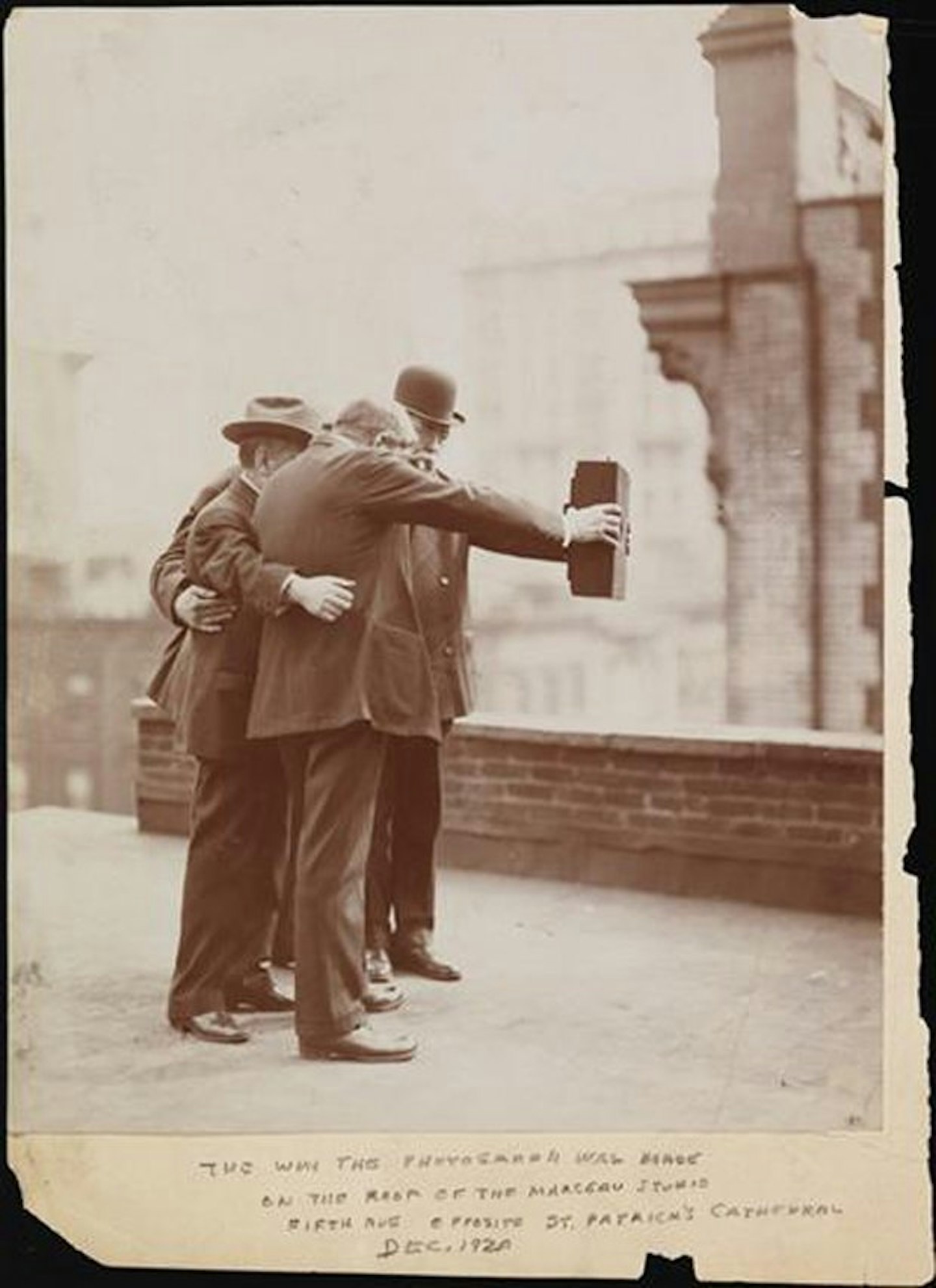‘Selfie’ may have only reached the dictionary (whatever that is anymore) in 2013, and it might keep on autocorrecting as we write this article, but it’s been around for pretty much as long as cameras.
However, it still looks a bit odd when you see one like this – a group of men in 1920s New York, huddled in together, arms outstretched, taking a selfie. There’s a shot of them taking the photo, and another one of the photo they've taken, so you can see the selfie from within and as an onlooker. The caption reads: ‘Five photographers posing together for a photograph on the rood of Marceau's Studio, while Joseph Byron holds one side of the camera with his right hand and Ben Falk holds the other side with his left hand.’ Very detailed, that.

Back then, cameras weren’t dinky and light enough to fit into one person’s hand, so two grown men had to hold the boxy device up. The image, uncovered by The Gothamist, isn't the first selfie, though, as they were actually about 80 years old by this point – US chemist Robert Cornelius took the first recorded selfie in 1839, and artist Edvard Munch (him behind The Scream) took half-naked selfies in the early 1900s, perhaps with a mind to send to an admirer, like an old-school Tinder.
It's kind of a relief – we’re not into selfies because we’re phone-obsessed narcissists, we’re into them because we’re continuing a lofty photographic tradition. Yep, our selfies are art!
Right, now that it's established that selfies are old… older than the car and votes for women, can our computer stop autocorrecting the word to ‘selfless’, please?
Follow Sophie on Twitter @sophwilkinson
Pictures: Courtesy of Museum Of The City New York
This article originally appeared on The Debrief.
